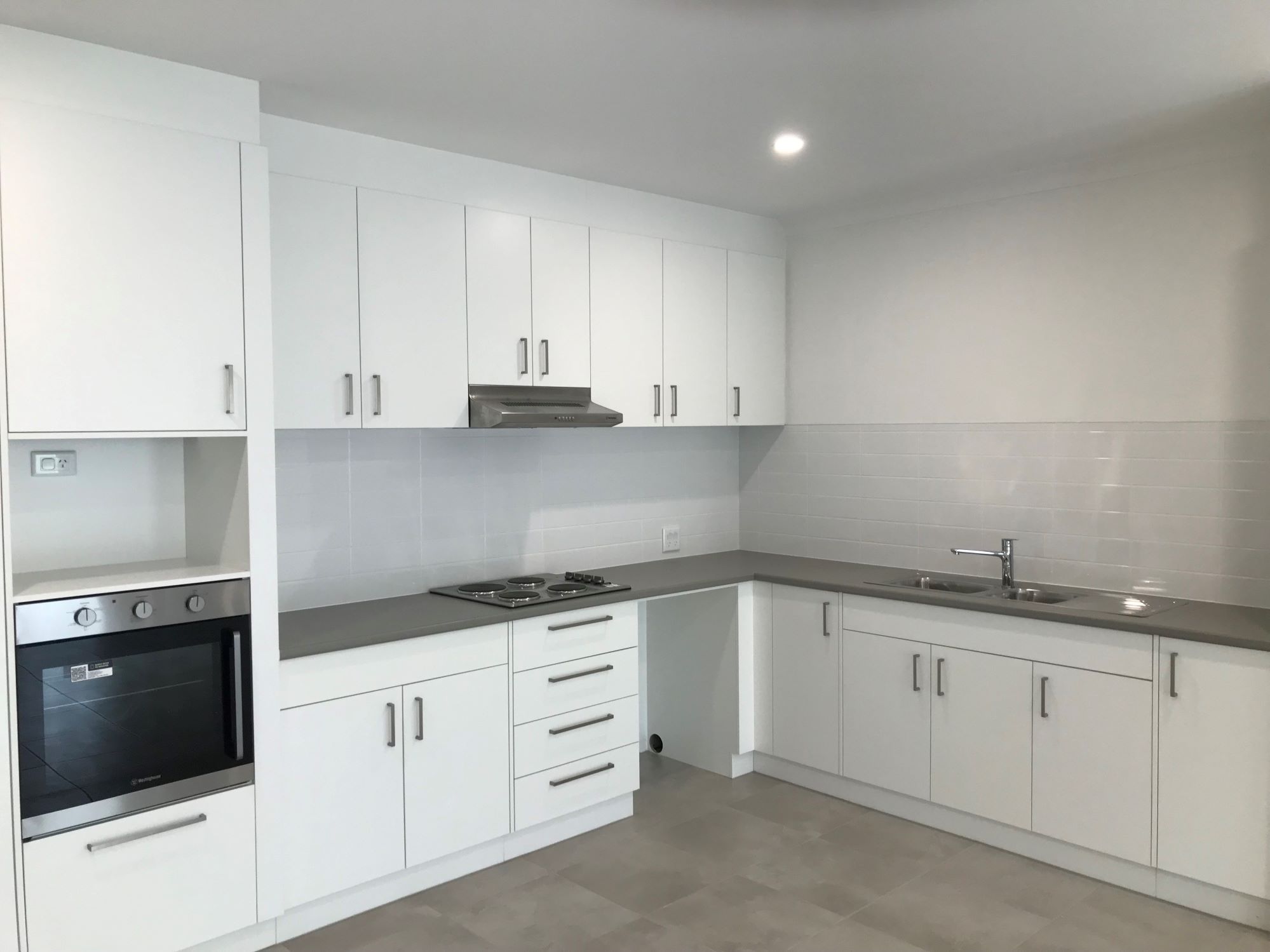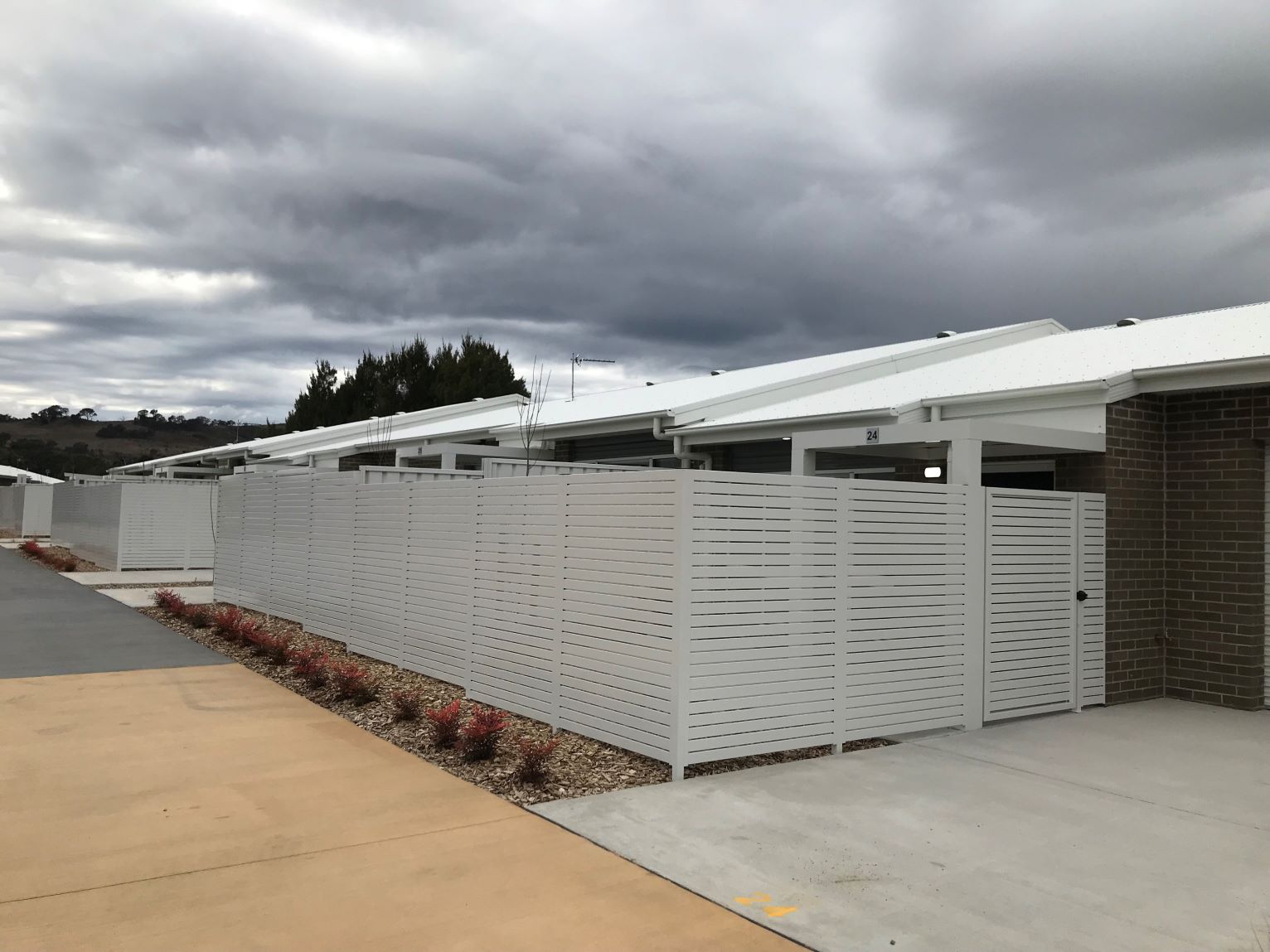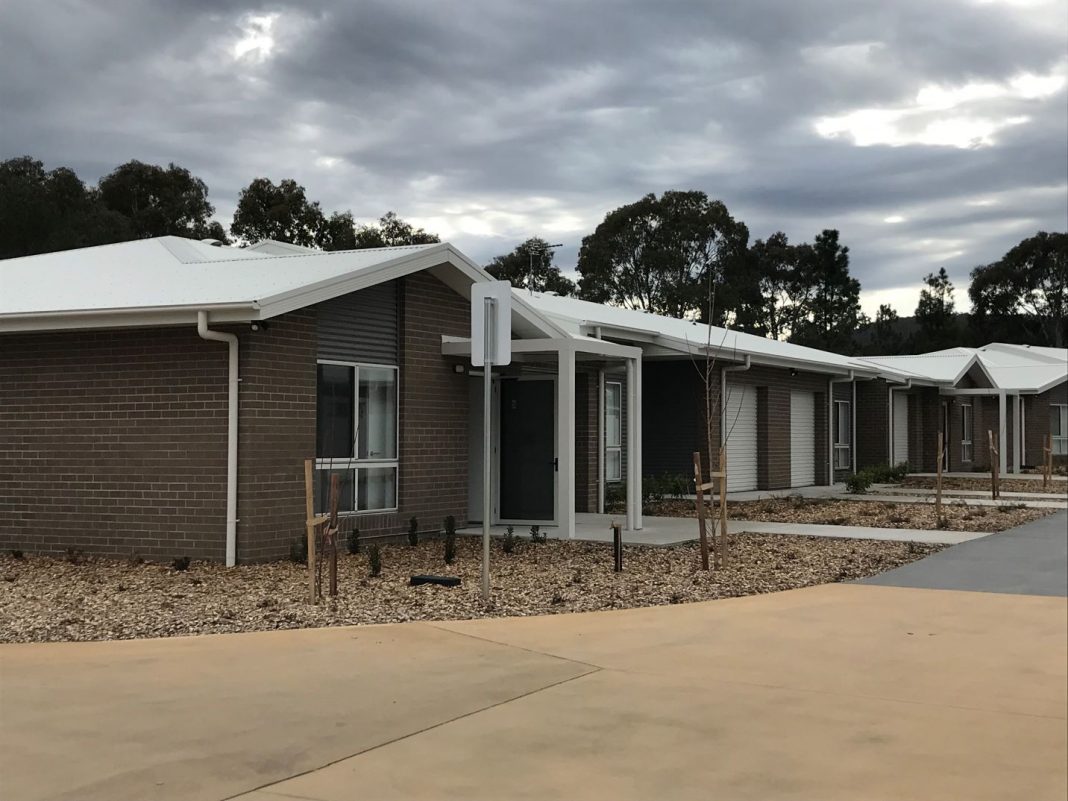Next month, the tenants of Canberra’s newest public housing dwellings will receive the keys to their new homes. The ACT Government has built a new development in Calwell, with 30 dwellings: 22 two-bedroom homes and eight three-bedroom homes. All have seven-star energy ratings, and are designed to be used by people with disabilities.
“These homes are sustainable, they are environmentally appropriate, and they are accessible, and so they will meet families’ needs now but also well into the future,” housing minister Yvette Berry said.
“These will be places that people can call home, that meet their needs, whether that’s with their families and friends, or whether that’s with schools and shopping centres, or even just being in a new place that they want to call home and build their own communities.”
A seven-star home – required by the Federal Government in all new houses from this October – means low energy consumption and they are easy to heat, building approval consultant Jerry Howard explained. The houses are double-glazed, well-insulated, and have a northern aspect, so they get the sun in the morning, and the concrete retains and releases the heat during the day. The homes also have energy-efficient hot-water systems, reverse cycle air conditioning systems, and evaporative cooling and heating.
The ACT Government has worked with disability organisations to make sure the homes are accessible, Ms Berry said.
The homes are built to Class C Adaptable standards, incorporating all essential features, Mr Howard and Housing ACT’s Ben Norton explained: fit for purpose bathrooms for people with disability; level-entry thresholds, including doorways and showers; light switches and power points at chest height; and adjustable kitchen benches, pantries, and pipes that can be lowered to the right height for somebody in a wheelchair.


“It’s easy when you actually design it into the kitchen,” Mr Howard said, “very difficult if you had to modify your standard kitchen to achieve that, because the pipes will be in the wrong place.”
The development is near schools, shops, services and transport – and someone in a wheelchair can travel down a walkway from their doorway to the shops, Mr Howard said.
The 30 new dwellings will go towards meeting the ACT Government’s commitment under the Parliamentary & Governing Agreement to build 400 additional public housing dwellings by 2025, Ms Berry said. All the others, bar 22, are either being built or under contract.
“We’re well and truly on the way to meeting our 400,” Ms Berry said.
There are 3,175 people on the ACT public housing waiting list: 30 per cent of them require three- and four-bedroom homes; 60 per cent require one- or two-bedroom homes.
“This meets the needs for our allocations for people who are on the waiting list as well,” Ms Berry said.
Nova Builders began construction work in November 2022; the dwellings took nine months to build. It seems this is an encouraging return to a normal timeframe after the pandemic. Then, new dwellings could take up to 18 months because of supply issues and constraints in the construction industry, but, Ms Berry said, “we’re starting to see that challenge soften”, so homes can now be built more quickly.
“Providing more homes in the rental market here in the ACT frees up opportunities for more people to get into homes of their own – whether that’s through a private rental, public housing, or community housing,” Ms Berry said.
Although the ACT has the highest per capita public housing compared to other states and territories, the minister noted – almost double the proportion of other jurisdictions – addressing the housing crisis will require the government to work in partnerships, Ms Berry said.
To that end, the ACT has partnered with the Federal Government on their Housing Australia Future Fund (to build 30,000 new social and affordable housing properties in the first five years) and the $2 billion Social Housing Accelerator (of which the ACT will receive $50 million). In the recent budget, the ACT allocated $62 million to increase affordable rental housing and home ownership, and will partner with builders and investors to supply build-to-rent properties.
The ACT Government is looking at purchasing more homes on the market, and at redeveloping, upgrading, or renewing homes in Housing ACT’s portfolio.
More than 500 homes have been delivered under the ACT Government’s commitment to develop 30,000 new dwellings over the next five years, and another 700 homes are being designed or constructed.



